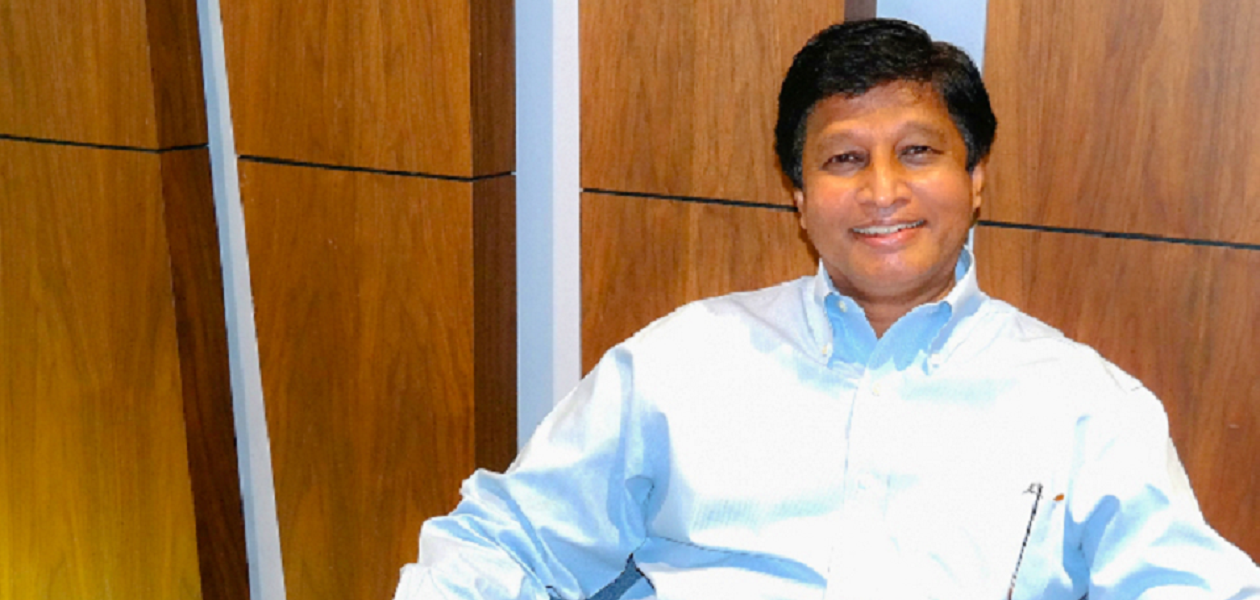Harnessing open innovation for growth in healthcare
With over 30 years of experience in Asia’s healthcare sector, IPI Innovation Advisor Ramachandran Rajamanickam is passionate about helping local SMEs navigate the industry.
Spanning nutrition and supplements to pharmaceuticals and medical technology, Singapore’s healthcare sector is teeming with innovation and entrepreneurship and as a result, consumers are always eagerly awaiting the next big health breakthrough. With Singapore’s healthcare market expected to grow to S$21.4 billion this year, new start-ups and SMEs can expect to enter a thriving and competitive space.
As there is increasing interest in innovation opportunities within the healthcare sector, local companies stand to benefit from pooling resources and collaborating through open innovation. Particularly in the healthcare industry, there are numerous avenues for pioneers to come together to engage in discussion and development with partners like IPI and through events such as TechInnovation.
To help start-ups and offer SMEs business support with their open innovation journeys, IPI Innovation Advisor Ramachandran Rajamanickam taps on his decades of experience in the nutrition and pharmaceutical industries to offer guidance and advice for growth.
Riding the right wave
To innovate and design the best products possible, companies must first find out what interests consumers. With over three decades of experience in healthcare and innovation, and a finger on the market’s pulse, Ramachandran believes that liver health and vascular dementia are two significant upcoming health trends that innovators can focus on.
He explains that discussion about diabetes was not particularly present just over a decade ago. Still, as cases began to spike and government campaigns took effect, products centred on diagnosing or reducing the risk of diabetes and pre-diabetes became increasingly popular.
While it helps to understand upcoming trends, innovators must balance a fine line between new ideas and existing awareness. Ramachandran suggests SMEs consider current trends carefully to avoid entering arenas where there is no awareness or where the market is overly saturated. Indeed, riding the waves of existing awareness rather than spending exorbitantly to create their own, he says, is key. “You want to be ahead of an upcoming need—but not too far ahead that the market is not ready.”
“Especially for SMEs and start-ups, as much as it's exciting to be breaking through and being ground-breaking in new areas, the quicker returns tend to be in areas where there's some level of awareness already raised—either by the industry or even by the government,” he explained.
Keeping a clear vision
Armed with clear knowledge and know-how, for any innovation team raring to go to market with their product, it is essential that they maintain clarity of the consumers they plan to serve throughout the development and commercialisation process.
According to Ramachandran, many young companies face the common issue of a lack of clarity. A lot of time is spent developing their product, and not enough time is spent defining a clear target audience, their needs and translating how the products meet those needs.
“I think that’s an area that many Innovation Advisors, including myself, try to help refine,” he explained. “We need to be able to translate your passion as an innovator into realism.”
For example, currently Ramachandran is working with a company that has produced a supplement to improve cognition. While working with them, he found that there was a general lack of clarity across their intended target audience, potential channels to go to market and communication with consumers.
The founder, a neuroscientist, was able to explain their product to doctors and other experts but not to consumers. Rama stepped in to guide them as they began adapting their communication to convey the clear benefits of their product and win over consumers.
Pooling together through open innovation
To truly thrive in Singapore’s growing healthcare industry, Ramachandran always goes back to open innovation. From start-ups to industry giants, every company has limitations. With open innovation, expertise and resources can be pooled together to maximise what is available and drive both companies to more dramatic growth.
However, as a new company entering the market, start-ups and SMEs may not be aware of the help available to them or the companies willing to work with them. In this regard, Innovation Advisors like Ramachandran, who has helped bring about numerous products to market throughout his career, can be extremely helpful. Armed with an extensive network of contacts that can be drawn on for collaboration and help, and a deep understanding of making science appealing to consumers, such support and intel for new SMEs can be the difference between success and heading back to the lab.
“I love the fact that in Singapore, we have this ecosystem for innovation. Where you can share ideas and leverage each other’s abilities,” shared Ramachandran.
Additionally, when collaborating, Ramachandran continues to offer advice on what to share and keep confidential. Such guidance could prevent new entrepreneurs from making detrimental errors.
By providing clarity, extending access to a wide pool of potential collaborators and giving professional advice on development and commercialisation, Innovation Advisors like Ramachandran have a lot to offer local companies looking to break into the healthcare market.
“We want to help Singapore SMEs,” shared Ramachandran. “How we can translate what we have learned in the industry over the last 30 to 35 years to help local SMEs is what is driving our passion.”
If your company wants to harness open innovation to accelerate growth, check out IPI’s Innovation Advisors Programme to learn more about how you can tap on professional guidance from an experienced consultant.

